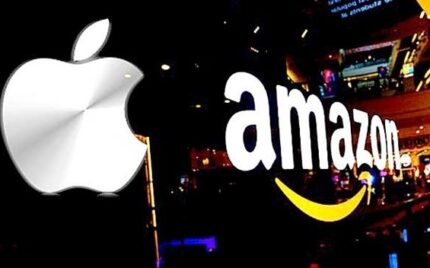
Human Resource Management In The Age Of Artificial Intelligence
6 yearsago 0 Comments 5.6k Views
For the past few years, artificial intelligence (AI) has been a tech buzzword everywhere, from Silicon Valley to China, and Vietnam is definitely not an exception. In the era of constant technological change and innovation, AI promises to transform the business world drastically. For human resource management (HRM), the adoption of AI in core operations will help improve HR functions, allowing companies to streamline processes of talent acquisition and employee engagement.
What is AI?
AI is the simulation of human intelligence in machines programmed to think like humans, mimic functions associated with the human mind such as learning, reasoning or problem-solving, and execute tasks regardless of their complexity. With its high-speed computation and advanced algorithms, AI is capable of analyzing big chunks of data, providing better speed and accuracy to everyday processes.
AI usage in Human Resource
So how can AI help HRM? HR, a field that depends on masses of data to gain useful insights on potential candidates as well as employees, with the help of AI will improve efficiency and save businesses lots of time and efforts by (1) streamlining the recruitment process, (2) automating repetitive tasks, (3) enhancing employee engagement, and (4) transforming learning and development.
1. Streamlining the recruitment process
The hiring process is often a tedious and laborious task for hiring managers as they must assess lots of data and applications from multiple sources in order to find the ideal candidates that might be a good fit. AI-backed systems, on the other hand, can scan resumé much significantly faster than humans, analyze interviews performed by a recruiter, and take into consideration further insights on a candidate that could affect their chances of getting accepted. This saves recruiters or hiring managers a large amount of time building a list of potential employees. Some platforms can even solve the problem of unconscious human biases in short-listing candidates and allow the recruitment process to be more objective.
2. Automating repetitive tasks
AI technologies present an opportunity for HR to automate repetitive and low-value tasks, allowing them to focus more on productive work that requires a greater interpersonal approach. In general, HR managers consume lots of time and energy on standard, repetitive processes such as onboarding new employees, managing payrolls, or analyzing performance review data, etc. With AI-supported tools, such problems can easily be eliminated while time and resources can be spent improving efficiency and solving other workplace-related issues for the success of the company.
3. Improving employee engagement
Using natural language processing, machine learning, and biometrics, AI-enabled platforms also play a pivotal role in improving employee engagement, allowing companies to secure and retain high performers. Some can track real-time performance, implement feedback platforms and intelligent surveys to better understand the employees and enhance the work experience. Aside from analyzing whether employees are feeling happy or stressed, such platforms also make recognizing and rewarding hard work a top priority and help employees feel appreciated in a professional work environment. Additionally, other software can strengthen team collaboration by creating a team of employees who can work well together and drive better employee engagement.
4. Transforming learning and development
AI can act as HR executives’ guide in offering each employee’s learning methods that work best for them based on their preferences, skills, and career goals. In other words, HR representatives can now customize adaptive, structured training programs using insights discovered from the vast amount of data analyzed by AI solutions. This not only allows managers to understand more about their employees but also motivates employees to learn and develop personal skillset; thus, improving workforce productivity and business profitability.
Early AI adoption – should or should not?
HR has evolved over the years thanks to the adoption of advanced technologies. However, when it comes to AI, it seems HR is not totally prepared. While there are a few barriers to AI technologies adoption regarding the lack of technical skills, privacy concerns, integration capabilities, financial shortages, etc., there is no doubt about the benefits that AI solutions could bring to the company. Adopters in this field could improve recruitment efficiencies and attract the most qualified candidates, reduce the time and effort spent on repetitive tasks, and enhance employee engagement as well as their learning and development process. All these benefits can lead to an efficient business that has multiple advantages over its competitors. There, managers and employees can maximize job performance and drive overall profitability.
According to Entrepreneur, Big Data Made Simple, EY
——————–
How do you think about this article? Please share it with us via the comment section below.
PRIMUS – TOP MANAGEMENT JOBS ONLY









